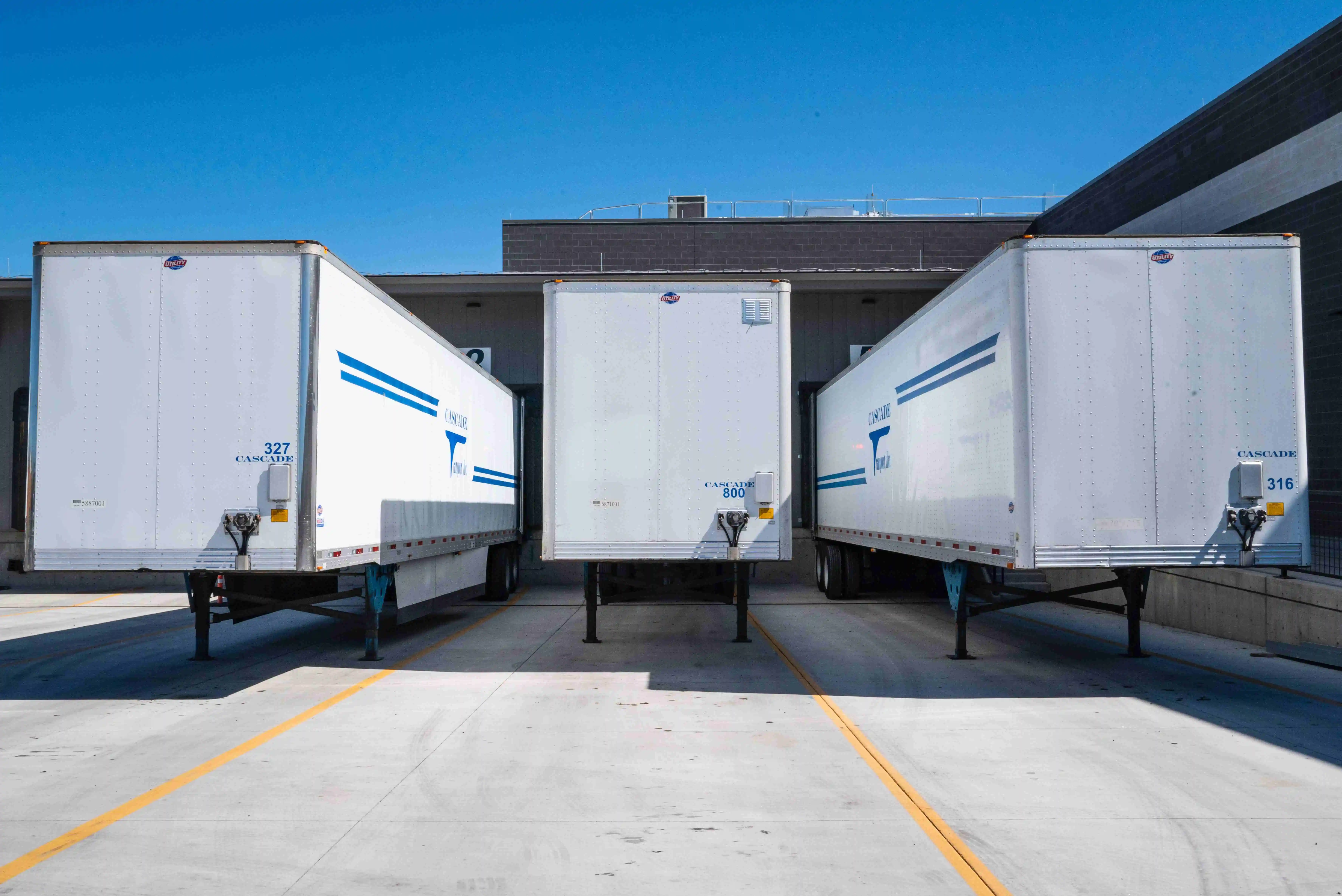Logistics Management in Business: The Complete Guide 2023!

The logistics management is the central pillar that enables transportation and logistics companies to optimize their operations. This discipline relies on effective planning, seamless coordination, and judicious use of resources to ensure a continuous flow of goods and services. Master the subject thoroughly with our guide!
- What is logistics management?
- Why is logistics management important?
- Key elements of logistics management
- Best practices for efficient logistics management
- Challenges and solutions for optimal logistics management
What is logistics management?
Definition of logistics management
Logistics management encompasses all activities aimed at:
- organizing,
- coordinating,
- and controlling the movement of goods from the point of production to the point of consumption.
It also extends to the management of associated information flows, thus ensuring optimal synchronization among all links in the logistics chain.
What are the 3 types of logistics?
- Transport logistics: Focused on the planning and execution of physical movements of goods, this logistics branch includes choosing modes of transport, managing routes, and coordinating delivery operations.
- Supply logistics: It encompasses all processes related to acquiring the raw materials necessary for production. Efficient management of this logistics ensures a constant availability of essential resources.
- Distribution logistics: This branch focuses on delivering products to end customers. It includes storage, picking, packaging, and shipping of goods, ensuring optimal customer satisfaction.

Role and objectives of logistics management
Logistics management holds a fundamental place within transportation and logistics companies, representing the foundation upon which operational efficiency rests. Its fundamental role is to orchestrate the different stages of the process, from planning to execution, thus ensuring a smooth and efficient supply chain.
- Optimization of goods flows:
Logistics management primarily aims to optimize the flow of goods, ensuring a continuous circulation of products throughout the logistics chain. From goods reception to their distribution, each step is meticulously planned to avoid delays and minimize costs.
- Inventory and warehouse management:
Another essential pillar of logistics management lies in inventory and warehouse management. The objective is to maintain adequate stock levels to meet demand while avoiding surpluses that could lead to unnecessary costs. Efficient warehouse organization also contributes to better responsiveness to market fluctuations.
- Synchronization of transport operations:
Coordinating transport operations is a constant challenge for logistics companies. Logistics management intervenes here by planning the most efficient routes, optimizing the use of transportation means, and ensuring timely delivery of goods. This meticulous synchronization reduces delays and improves customer satisfaction.
- Cost-effective management:
Logistics management also focuses on controlling costs related to operations. This involves constant analysis of processes, identifying optimization points, and seeking innovative solutions to reduce expenses without compromising service quality.
- Integration of innovative technologies:
In a rapidly evolving technological landscape, logistics management adapts by integrating innovative tools such as Supply Chain Management Systems (SCMS) and real-time tracking technologies. These advancements provide increased visibility into operations, facilitating decision-making and enhancing responsiveness to unforeseen circumstances.
Well-optimized logistics management enables you to improve your productivity and customer satisfaction. Equip yourself with the right tools!
Why is logistics management important?
Logistics management holds significant importance within transportation and logistics companies, and its significance cannot be underestimated. It forms the basis for the smooth functioning of all operations.
The benefits of efficient logistics management
Efficient logistics management leads to optimized goods flows, significantly reducing operational costs. Every step of the process, from collecting goods to their delivery, is meticulously planned and coordinated, ensuring maximum productivity.
Product traceability is also a major advantage. Thanks to well-orchestrated logistics management, companies can track the location of goods in real-time, thus minimizing the risks of loss or theft. This transparency not only provides peace of mind but also strengthens customer confidence.
Efficient logistics management involves optimized inventory management. By having precise visibility into stock levels, companies can avoid unnecessary surpluses while ensuring constant product availability. This not only contributes to customer satisfaction but also frees up financial resources.
Consequences of poor logistics management
Conversely, poor logistics management can have detrimental consequences on the entire supply chain. Delays in delivery, order errors, and stockouts can quickly tarnish a company’s reputation.
Costs associated with logistical errors can accumulate rapidly, impacting the overall profitability of the company. Delivery delays can also lead to financial penalties and jeopardize relationships with customers.
Moreover, poor logistics management can overload staff, increasing the risk of human errors. It can also create tensions within the team and harm operational efficiency.

Key elements of logistics management
Supply chain and stock management
The supply chain forms the basis of any logistics operation. It begins with meticulous planning of raw material needs followed by inventory management. Efficiency lies in synchronizing suppliers, warehouses, and distribution channels.
Maintaining accurate inventory is a constant challenge. Stock management requires constant vigilance, integrating advanced technologies such as RFID for flawless traceability. The goal is to avoid stockouts while minimizing storage costs.
Transportation and product distribution
Transportation and logistics companies must juggle various modes of transport, from maritime to air and land. Efficiency depends on judicious selection of the mode based on specific operation requirements.
Product distribution is a delicate phase. Optimal route planning and meticulous coordination of deliveries are necessary to ensure maximum customer satisfaction. Companies are increasingly relying on real-time tracking systems to guarantee punctuality and safety of shipments.
Planning and optimizing logistics operations
Planning logistics operations require a methodical approach. This includes coordinating human resources, equipment, and technologies. The use of advanced planning software allows anticipation of needs, optimization of routes, and dynamic adjustments to operations in case of unforeseen circumstances.
Optimizing logistics operations aims to maximize efficiency while minimizing costs. This involves continuous analysis of processes, identifying weaknesses, and implementing improvement solutions. The integration of artificial intelligence and machine learning opens up new avenues to refine operational performance.

Best practices for efficient logistics management
Use of modern tools and technologies
To remain competitive in the dynamic world of logistics, integrating modern tools and technologies is essential. From real-time tracking systems to stock management platforms, these innovations offer visibility into the entire logistics chain. They not only anticipate potential challenges but also optimize routes, thereby reducing operational costs.
To make your logistics management even more efficient, accompany yourself with the best logistics tools on the market!
Importance of collaboration and communication
Effective collaboration among different links in the logistics chain is a determining factor for success. Whether between suppliers, carriers, or internal teams, transparent communication promotes coordination of activities. This collaborative approach enables rapid problem-solving, real-time plan adjustments, and ensures continuous operational flow.
Data analysis for informed decision-making
In the current digital age, data collection and analysis are powerful tools to improve logistics management. By examining past trends, companies can anticipate demand, optimize stock levels, and minimize delays. Data analysis provides a strategic vision, allowing logistics managers to make informed decisions based on concrete information.
Challenges and solutions for optimal logistics management
Logistics management plays an important role in operational efficiency and customer satisfaction. Faced with the increasing complexity of the supply chain, challenges abound, but innovative solutions abound.
Risk management and resilience of the logistics chain
The first step toward optimal logistics management lies in proactive risk management. Disruptions can arise at any time, whether due to weather issues, transport problems, or unforeseen situations. Anticipating these risks and implementing robust contingency plans is essential to maintain a resilient logistics chain.
Cost optimization and waste reduction
One of the major challenges in logistics management is maintaining competitive costs while ensuring quality service. Cost optimization involves judicious use of resources, seeking synergies, and adopting technologies such as process automation. Simultaneously, waste reduction has become imperative, both economically and environmentally. Effective stock management and meticulous planning contribute to minimizing losses and maximizing operational efficiency.
Adaptation to market demands and constraints
In an ever-evolving business environment, the ability to quickly adapt to market demands and constraints is a determining factor. Flexibility in logistics management allows for adjustments to operations based on demand fluctuations, market trends, and regulatory constraints. Emerging technologies such as the Internet of Things (IoT) and artificial intelligence are valuable allies in this constant adaptation.
In conclusion, logistics management for transportation and logistics companies is a delicate balance between anticipation, cost optimization, and adaptation to market fluctuations. Faced with these challenges, innovation and technology are essential catalysts for optimal logistics management. By investing in these areas, companies can not only overcome current obstacles but also prepare for the future in an ever-evolving logistics world.
